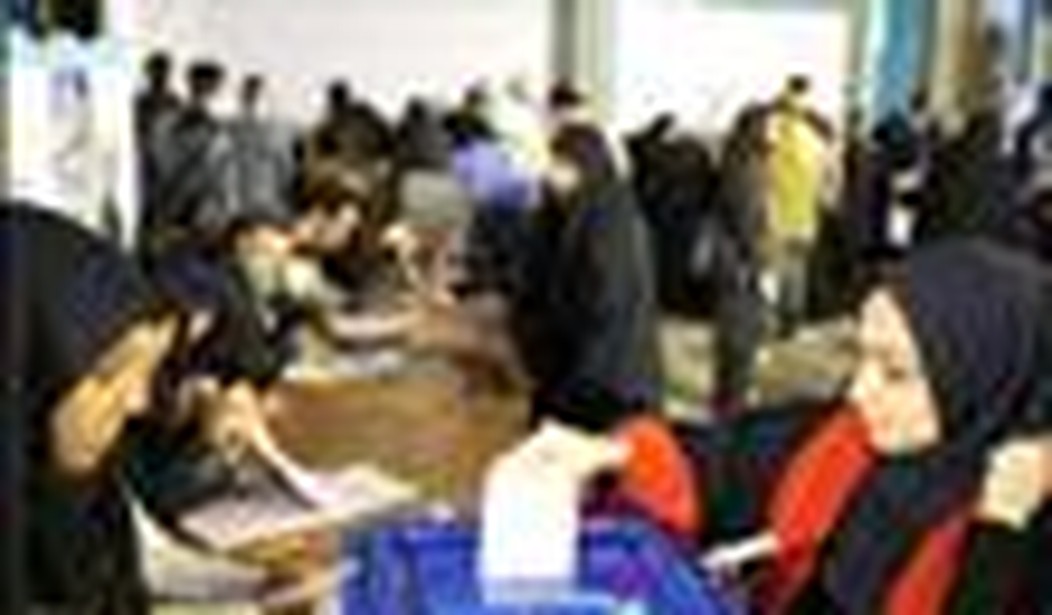The overall results of Friday’s Iranian parliamentary elections — a victory for the conservatives – were essentially a forgone conclusion.
Under the current law, conservatives are allowed to have at least one, if not more candidates competing for any of the 290 seats in the Majiles — the Iranian parliament.
Meanwhile their main rivals, the reformists, were only allowed to compete for 120 seats — it is impossible for them to gain a majority.
They’ve been operating with that handicap ever since Ayatollah Khamenei Iran’s supreme leader, culled their number before the elections. After the student riots of 2000, which took place during the presidency of the reformist Ayatollah Khatami, Khamenei started to lose trust in them. This is why he has worked ever since to marginalize them in Iranian politics.
So far, preliminary results from Iran show the conservatives won a majority of the seats, exactly as planned by the supreme leader.
However, the results are not neccessarily good news for the conservatives — and especially not for their leader President Mahmoud Ahmedinejad.
Despite their built-in disadvantage, it appears that the reformists have managed to win nearly 60 seats in the new Majles elected on Saturday. This represents a 200% increase compared to the last Majles, which ran from 2004 — 2008.
The result can be interpreted as a sign that opposition against Ahmadinejad is growing at a rapid pace amongst the people in Iran, and as a result, in the Majles, which is one of Iran’s most influential domestic political institutions.
President Ahmadinejad has no one else but himself to blame for this development. His badly managed economic policies, and failure to fight corruption have quite possibly made him more enemies than he could afford at the next presidential elections. His bellicose statements against Israel and the West have also damaged his credibility inside Iran, albeit to a lesser extent. To the people of Iran, their economic welfare is far more important.
Sadly for Ahmadinejad, it is not just his political rivals who are turning against him.
His former comrades in the Principalist (Osulgarayan) movement are following suit.
Why? Before the elections, Ahmadinejad decided to split ranks — and in their view — stab them in the back — by forming his own coalition within the party.
In reaction, a group of more moderate conservatives led by former nuclear negotiator Ali Larjani and Tehran’s mayor, formed a conservative coalition which in many regions ran for seats against Ahmadinejad’s allies — and succeeded.
This split in the conservative camp will mean that in the next Majles, Ahmadinejad will not only have to worry about opposition his reformist foes, he now also has to worry about his conservative “comrades” who are expected to take a sizable number of seats in the parliament.
All in all it looks like 2008 is going to be a tough year for the Iranian president, who is hemorraging supporters.
For his sake, he better hope that Iran’s supreme leader doesn’t join them them. The day that happens is the day Ahmadinejad will have to start packing his bags.
Meir Javedanfar is the co-author with Yossi Melman ofThe Nuclear Sphinx of Tehran – Mahmoud Ahmadinejad and the State of Iran. He runs Middle East Economic and Political Analysis (Meepas)








Join the conversation as a VIP Member